The Bible teacher and founder of Living Proof Ministries speaks candidly about her “knotted-up” life
At the tender age of 18, following a life-changing experience of God’s presence, Beth Moore surrendered her life to “vocational Christian service”. Knowing she wanted everything she did thereafter to be “ministry”, she found herself leading a Christian exercise class in her local church in 1980 during the height of the aerobics craze. What began as a small side-project for the young mum eventually morphed into a huge speaking and writing ministry known as Living Proof, which has reached millions of women right across the world.
At a time when Christian women – especially within the conservative Southern Baptist Convention (SBC) to which she belonged – were encouraged to be stay-at-home mothers and wives, Moore was speaking to thousands in packed-out stadiums across America. Her books and Bible studies – later picked up by Lifeway, the publishing division of the SBC – went on to sell in their millions.
More recently, it has been her condemnation of what she feels is “rotten” at the core of American evangelicalism that has seen her hitting headlines.
It began with Donald Trump. Moore wasn’t in the habit of wading into US politics but, in 2016, she felt she could no longer ignore the widespread evangelical support for the then-presidential candidate – especially after he boasted about predatory sexual behaviour. “There’s no possible way I could have stayed silent,” she told me.
Women were always not just secondary, but underneath this whole system
Then, when sexual abuse allegations surfaced within her own denomination – first in 2018 and covered more widely by journalists in 2019 – she began to feel more and more uneasy about aspects of evangelical culture. Moore wrote an open letter describing her experiences of misogyny in the Church, and began to advocate for sexual abuse victims – often speaking out on Twitter.
When Moore tweeted about speaking in her local church on Mother’s Day, the denomination turned on her. She says she witnessed more uproar in the SBC about women in the pulpit than the abuse scandal. It was, she says, “the nail in the coffin” and, in 2021, she walked away from the denomination she’d spent her life in. Because Lifeway was its publishing arm, she also walked away from the teams that organised her tours and published her books. No wonder she describes the end of that relationship as being “like a death”.
The 65-year-old has always been open about her own personal struggles, including the abuse she suffered as a child. But her new memoir, All My Knotted-Up Life (Tyndale) reveals other details for the first time, including the mental health issues she and her husband have wrestled with.
She speaks bravely about the vulnerability she still feels and the scars she carries, not only from her dysfunctional childhood, but also from being a woman in what was seen as a man’s sphere, and the gradual realisation that the SBC was fundamentally structured in a way that subjugated women. “It took me years to see that for what it was,” she says. Despite the battles she has endured and the challenges she has faced, she is, she says, still very much a passionate “Jesus follower”.
What was your family life like growing up?
In all of the upheaval, if you asked me: “Beth, did you know you were loved when you were growing up?” Absolutely. At the same time, I was being abused. And at the same time that my home was incredibly unstable, we were walking through the doors of a very stable – and stabilising – church.
In your book you say that when you turned eleven, “madness came for us” and “no kind of good dad does what my dad did”. What did you mean by this?
Even without ever having heard the words “molestation” or “abuse”, a kid knows inherently that a parent is supposed to take care of them. And they are not supposed to want them in any illicit and evil way. It is so disturbing when a protector becomes a perpetrator.
From the time I was abused by him [my dad], no matter what good he did, in my heart I thought: You are not a good person…and when there was no sorrow for it, and no repentance for it, you honestly think to yourself: I have a person in charge of me, and in charge of my protection, that is evil.
If somebody said today: “Why didn’t you tell?” In that day, there was no telling, especially in a small town.
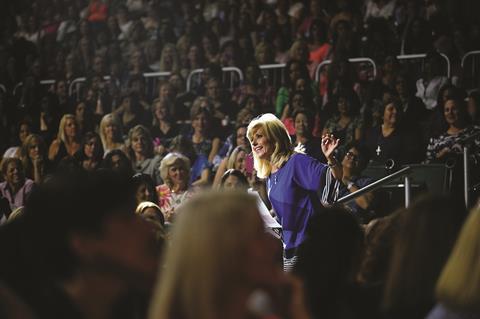
Did your mum know what was happening?
I cannot imagine that she did, maybe because I truly can’t bear to imagine that she did. What I will say is that she knew he was messed up and dysfunctional, sexually. But I don’t think in her wildest imagination she would have thought of it turning to me.
I don’t paint her as a saint. She did know that he was not living an honest or decent life at that time. And of course, she had a [mental] illness. When she would come out of it for a while, she would not ask the pertinent questions. We had every kind of symptom of kids who had been thrown into a most unstable situation. But she just couldn’t handle it.
Your husband, Keith, had PTSD and was eventually diagnosed with bipolar disorder. How did that affect your marriage?
It’s important that people understand that I came into the marriage with absolutely as much baggage and just as much brokenness. It was part of what drew us together. His was through tragedy; he and his older brother, when they were just toddlers, were playing in a garage and began to play with the can of gasoline for the lawnmower. It rolled under the water heater and exploded. His brother lived for six days.
Keith was in the same hospital room with his brother until his brother passed; the trauma of that was unmanageable. So he would return over and over to that garage in his dreams. It has been [like] wrestling with such an enormous beast for him. I fell into a deep depression in my mid-30s, so in no way am I centring all of our difficulties on Keith; we had equal shares of bondage that we brought into the marriage.
Amid those difficulties, you had two daughters and your ministry, which started with a Christian aerobics class. How did that come about?
All you have to do is look at the age I was at the peak of the aerobics craze! It was natural. I always loved to dance. People at my church said: “Beth, you need to teach us a class.” And so I thought: I gotta find some way that would be ministry to do this. That’s where the Christian music came in. I taught [aerobics] for twelve years and I loved it. But, at the same time, I was growing as a speaker and a Sunday school teacher.
When I started writing Bible studies, that’s when I had to give it up, but it was one of the most fun things I ever did.
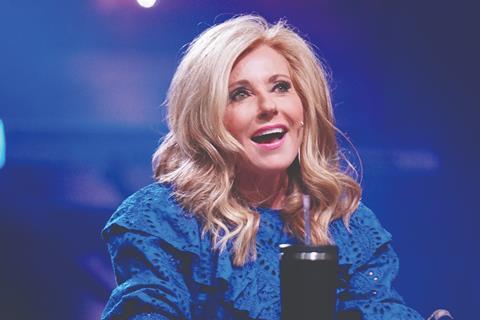
You founded Living Proof in 1994; how did your family navigate the growing success of your ministry?
Keith and I determined what would work. I did not start writing Bible studies that would end up getting picked up by Lifeway until the kids were in middle school. I was already going places to speak but, in their younger years, I could go and speak at a luncheon and be back before the [school] bus ever pulled up.
Two nights a month, never consecutive, I would be speaking in some Texas town and I’d be back the next day. So they had a working mum, but I still got to raise my own children. But when it exploded, in the way of growth, that was not without effect. There was a cost with it. I worried about it early on. I loved it; I wouldn’t take back any of that experience, but I knew it was fraught.
I still believe that the Christian ‘celebrity’ [status] is something to survive. Would I have wanted to stay in it? No. I knew it was dangerous. I’m not sad that I got to experience it, nor am I sad to be on the other side of it.
You write about coming of age when Jerry Falwell’s Moral Majority (an American political organisation founded to advance conservative social values) and the SBC’s ‘Conservative Resurgence’ were at their peak. What impact did that have on you?
They were very shaping. I was graduating from college and getting married when Moral Majority was really picking up speed. Even though it only lasted a short time, its way of thinking is still very much in play today. It was this conflating of conservative Christianity with politics, and in particular with Republicanism. I am a conservative, but I knew I didn’t want my American flag conflated with my Bible. As Christians we have to be free agents.
On the other hand, the Conservative Resurgence – this I bought into totally. There were very good things that came out of it, and there were rotten things that not only came out of it but were part of its formation. [In particular] that was using the scriptures for control. What became clear was that some of the motive was to [ensure] men were always in charge. Women were always not just secondary but underneath this whole system. It took me years to see that for what it was.
The only way to deal with it was to leave as an act of protest
Then, in 2016, we [American evangelicals] went crazy for Trump and there’s no possible way I could have stayed silent through that. I was so appalled. Despite Access Hollywood [a video where Trump could be heard making sexually explicit and abusive comments about women], he was the poster person for Christianity. It was almost a messianic fervour. To me, it was like: Oh, I see, this is how much we value women, that we’re not going to have a fit over this. And we didn’t.
You decided to write a series of tweets in response. What happened?
I had just been serving at a conference. On my way home, I read a whole transcript of it [Access Hollywood]. This was not just sexual immorality. This was talking about “grabbing” someone who is not consenting; I just could not stomach it.
So I wrote those tweets. I knew exactly what I was doing. I’d had my prayer time that morning. I’ve had so many people say: “Why did you enter politics?” I entered into the conversation because of what it was doing in the Church. I expected Donald Trump to be exactly like Donald Trump. What I didn’t expect was for us to be like we were.
The impact of it was fierce and fast. I expected it from the men, I think – at that point, I didn’t care. I was so mad at those guys. But I didn’t expect the women to respond negatively. People dropped the Bible studies like hot potatoes. It was extremely difficult for my family. And yet, if you asked me would I do it all over again, I think I’d do the same thing.
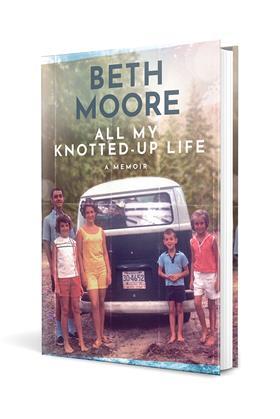
How did you end up leaving the Southern Baptist Church?
It was not right away that I left the SBC…but [after Trump] then comes this huge scandal in the SBC, where it becomes known how prevalent abuse had been.
At the same time, it becomes the focus of so many people in the denomination that women will not be allowed to be upfront. They were coming down tighter and tighter on women’s roles, saying women were after the pulpit, and were trying to be pastors. The only way to deal with it was to leave as an act of protest. It was like a death. This was my lifelong denomination, so it just nearly killed me.
How do you feel about the SBC now?
I am so thankful that was my denominational heritage; I will treasure it all my life. And I’m happy to say that they have made some gains in response to protection against sexual abuse and in favour of victims.
There are many churches that are responding to the crisis. Others are not. Do I still have a great love and respect for many Southern Baptists? Absolutely. Would I, upon invitation, come and serve? Without a doubt. But will I go back? I can’t imagine that I will; I think there’s just too much water under the bridge. If I walked in, there’d be some so happy to see me and some very unhappy to see me.
While you were in the SBC you were part of a denomination that believed men and women are created equal and yet have different roles in church – with only men taking up leadership positions (the complementarian stance). Do you still believe that, or are you now an egalitarian (meaning women can serve in any area of church life)?
I cannot bear to put myself in either of those two categories. I know the kind of flack I’m gonna get for saying that, but I am so weary of the compartmentalisation of cultural Christianity that I can no longer bear it. I just want to be a Jesus follower. You could ask me one question, and I’d probably land on the complementarian side. You could ask me another, and I’d definitely land on the egalitarian side. At the end of the day, I have seen misuse of both categories. And I am just tired of them.
It is so disturbing when a protector becomes a perpetrator
Looking back, how do you view your life and ministry now you’ve been through such a period of loss?
It nearly killed us. It brought such upheaval to the ministry. It is a testament to the character [of those in the Living Proof team] that so many of us are still together, because the Trump thing caused division. We were on different sides of all sorts of lines.
I’m just gonna say that God is good, because I was so certain that we were done. But we get into a pandemic – we have no more conferences for a time, we can’t even go to church – by the time we’re getting our feet back out there, it made us hungry again; it made it all new.
The outcome was something I would have longed for; to end my ministry years as passionate as I began them, and as hungry and anxious to serve. It’s been a beautiful thing. Not one single part of it has been wasted on us.
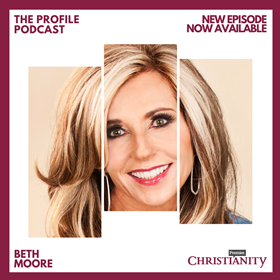
To hear the full interview listen to Premier Christian Radio at 8pm on Saturday 11 March, or download The Profile podcast premierchristianradio.com/theprofile













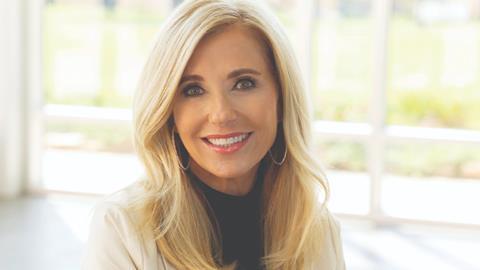
























1 Reader's comment